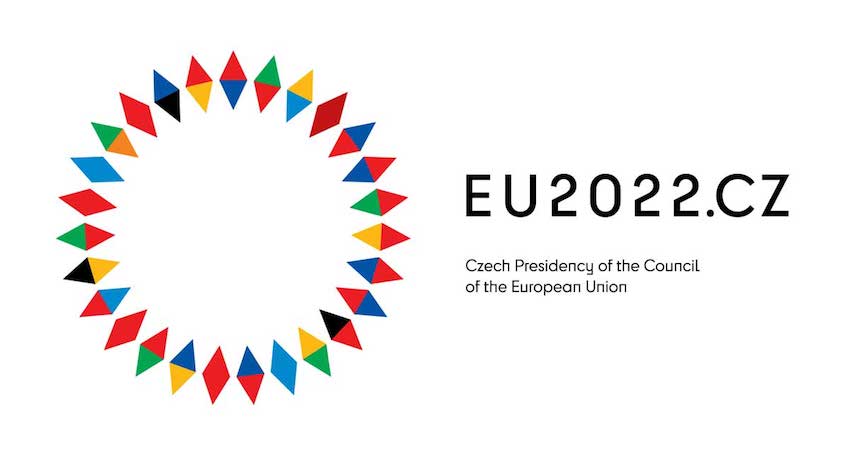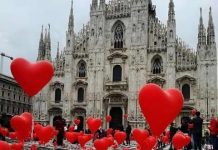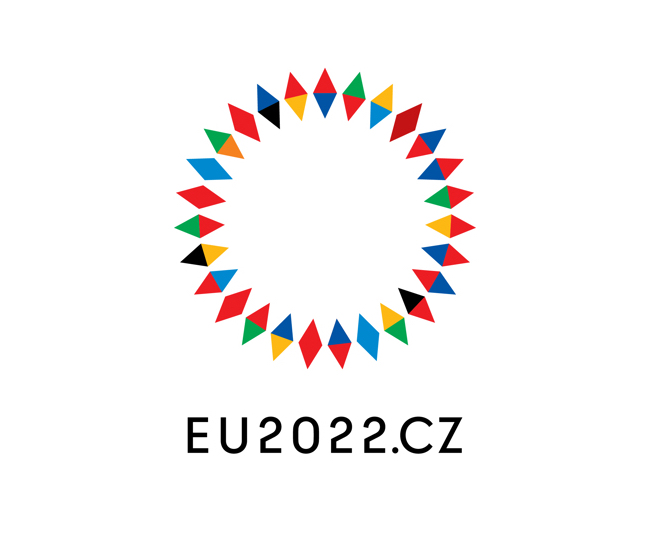After six months of French Presidency of the Council of the European Union, France handed over the baton of the EU Council Presidency to the Czech Republic. The symbolic act took place between President Emmanuel Macron and Czech Prime Minister Petr Fiala, along with Swedish Prime Minister Magdalena Andersson at the NATO Summit in Madrid on the 29 June 2022.



The Czech Republic holds the Presidency of the Council of the EU from 1 July to 31 December 2022 under its motto: Europe as a Task: Rethink, Rebuild, Repower.
It is a rotating role that each EU member state holds in turn for six months – meaning that with 27 member states, it only comes around once every 13 and a half years.
The celebration was topped by the sumptuous illumination of important buildings with the blue colour of the EU Flag throughout the Czech Republic. The National Museum in Prague provided its facade for videomapping.
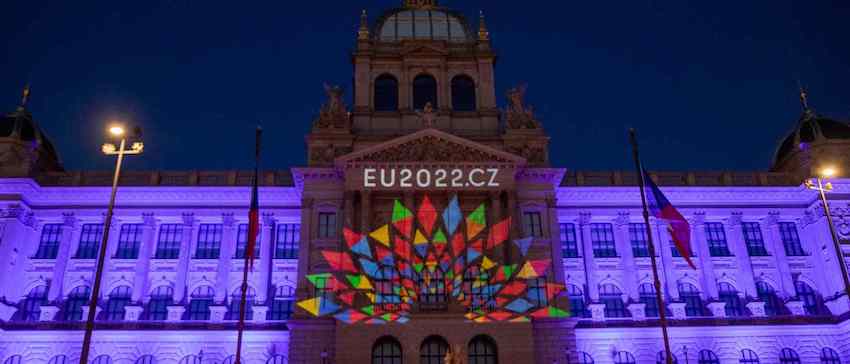
The official opening concert for the Czech Presidency took place on the 8 July 2022, at the Rudolfinum in Prague. The exclusive concert programme for the historic second Czech Presidency of the Council of the EU reflects Czech identity and its musical tradition in a modern interpretation, and proudly presents contemporary Czech works that express national and European self-confidence. Classical works by Antonín Dvořák were performed at the Gala Evening with the PKF – Prague Philharmonia conducted by Jan Kučera, followed by pieces of contemporary composers: the Birth by Jan Kučera, and the highlight of the evening was a world premiere, an energetic and powerful music,titled Stronger than Yesterday, composed for orchestra and solo piano by Tomáš Kačo, specially dedicated to this occasion. The concert ended symbolically with Modlitba pro Martu (A Prayer for Marta), an anthem of freedom.
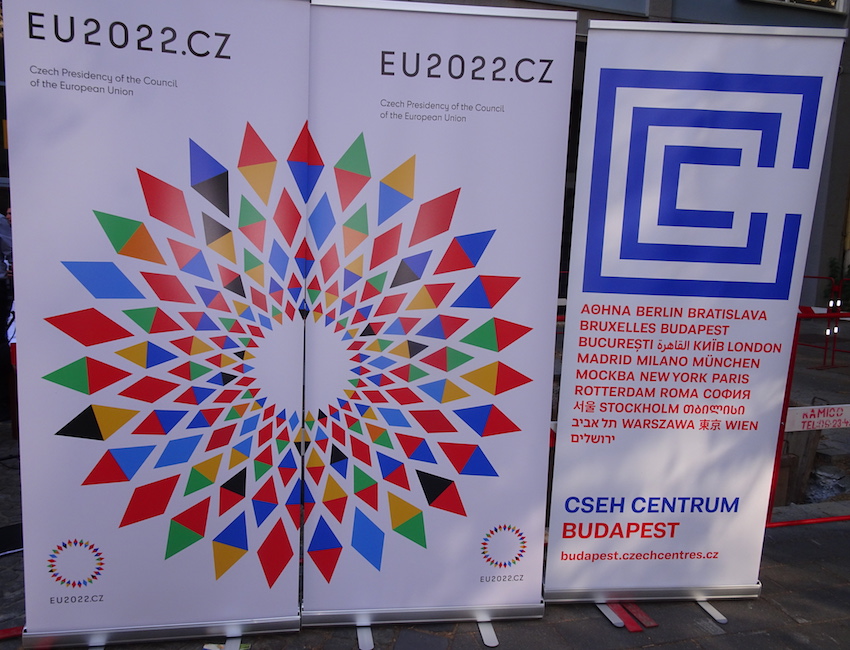
Celebration in Budapest:
Marking this occasion, the Czech Embassy and the Czech Centre in Budapest organised a public concert on 1 July 2022, at Liszt Ferenc Square, in front of the prestigious Liszt Academy of Music. It started with an official act: the symbolic handover of the baton of the Presidency of EU Council by H.E. Pascale Andreani, Ambassador of the Republic of France to Hungary to her Czech counterpart, H.E. Tibor Bial, Ambassador of the Czech Republic to Hungary, while conveying good wishes and all successes for the coming six months of the Czech Presidency in a very challenging time in the European and international context. France, the Czech Republic and Sweden are part of a Presidency Trio. Together they created a programme to follow for the three presidencies.
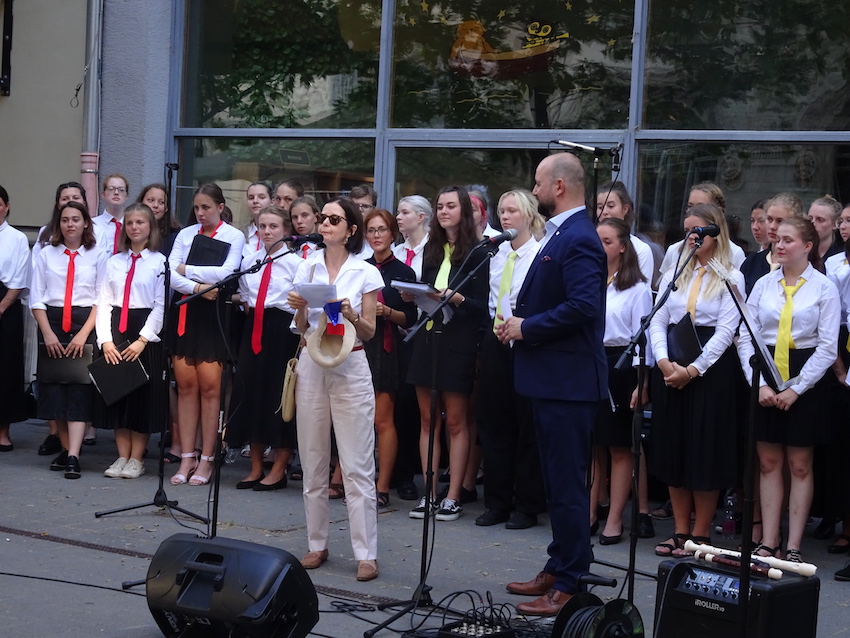
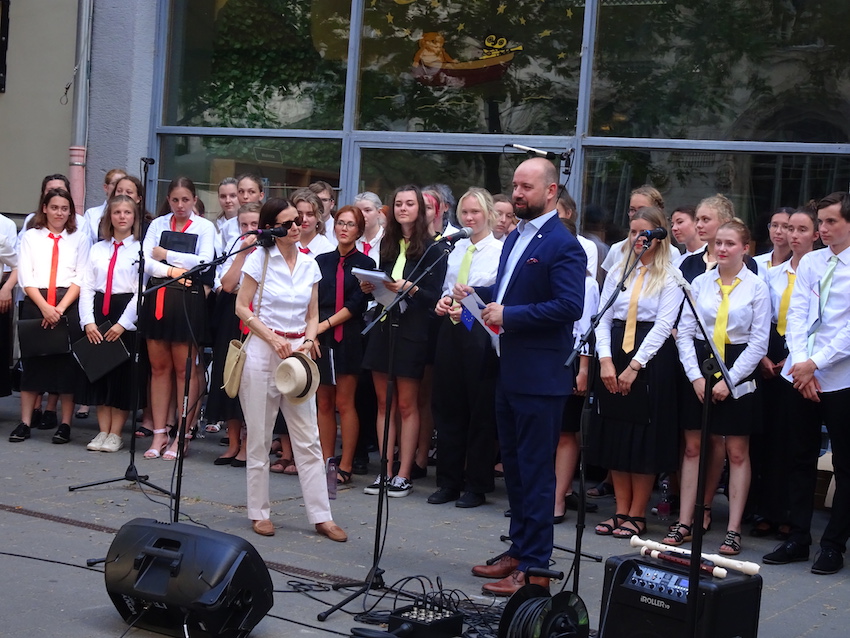
The open-air concert was performed by the Mendik Mixed Voice Choir, composed of students from the Gymnázium Jana Valeriána Jirsíka, České Budějovice. They prepared a rich and varied musical programme for the Hungarian and international audience. The event was attended by members of the diplomatic corps, Hungarian officials and music lover guests.
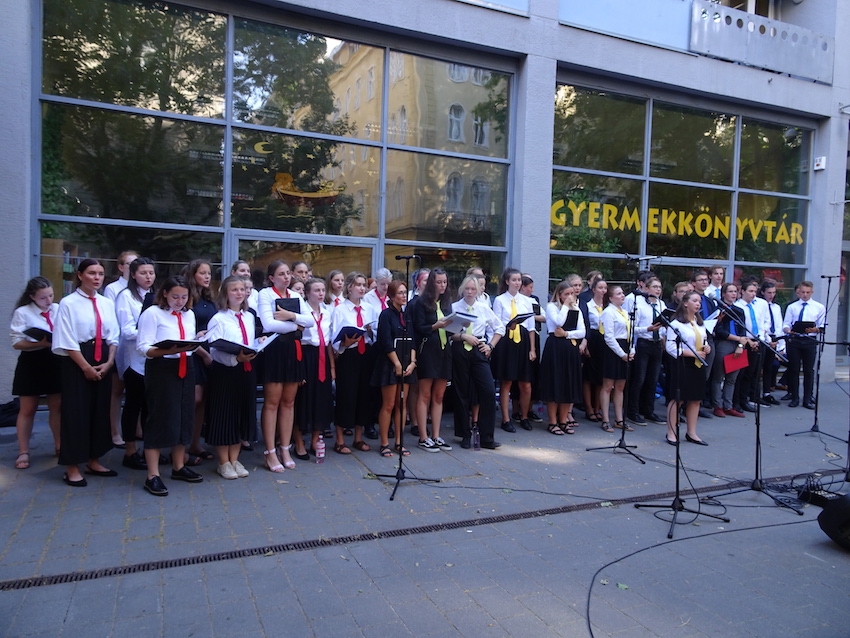
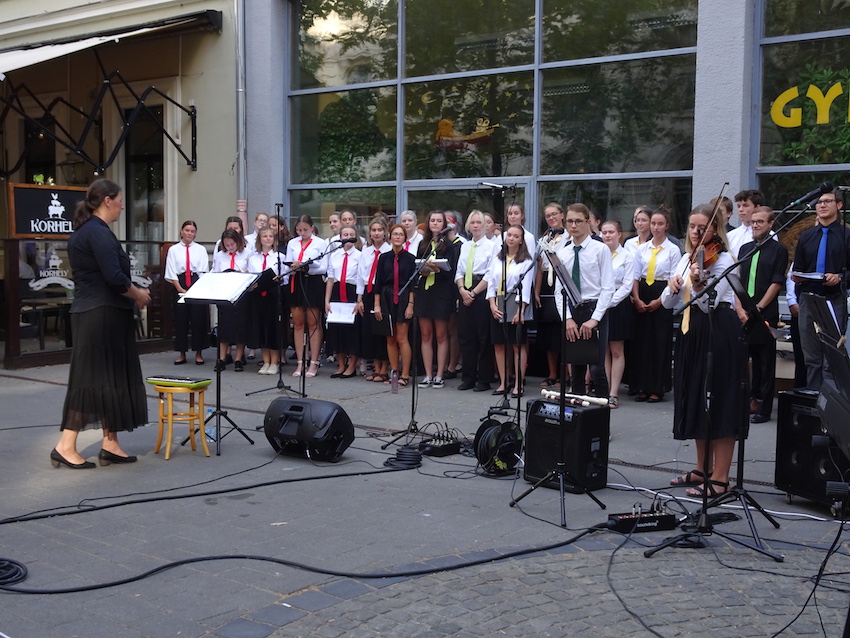
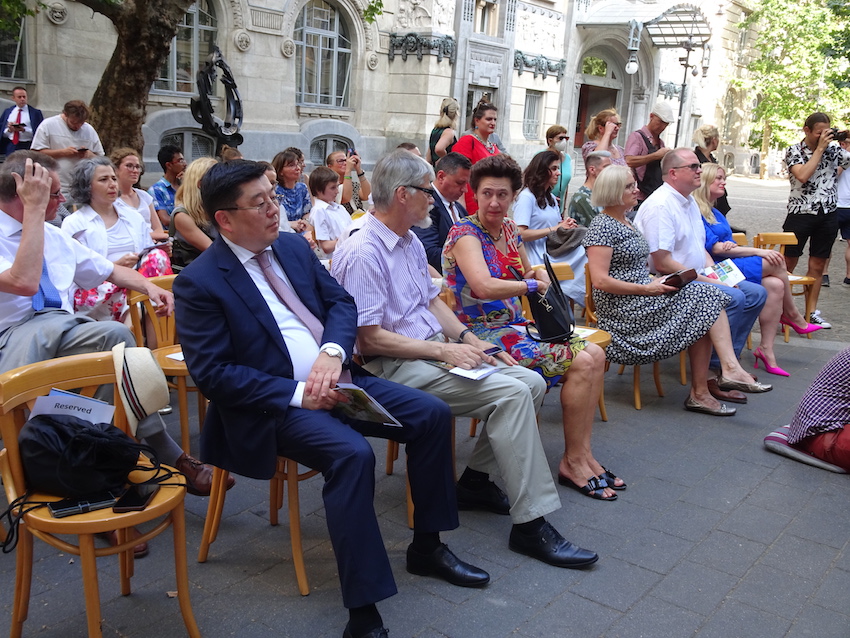
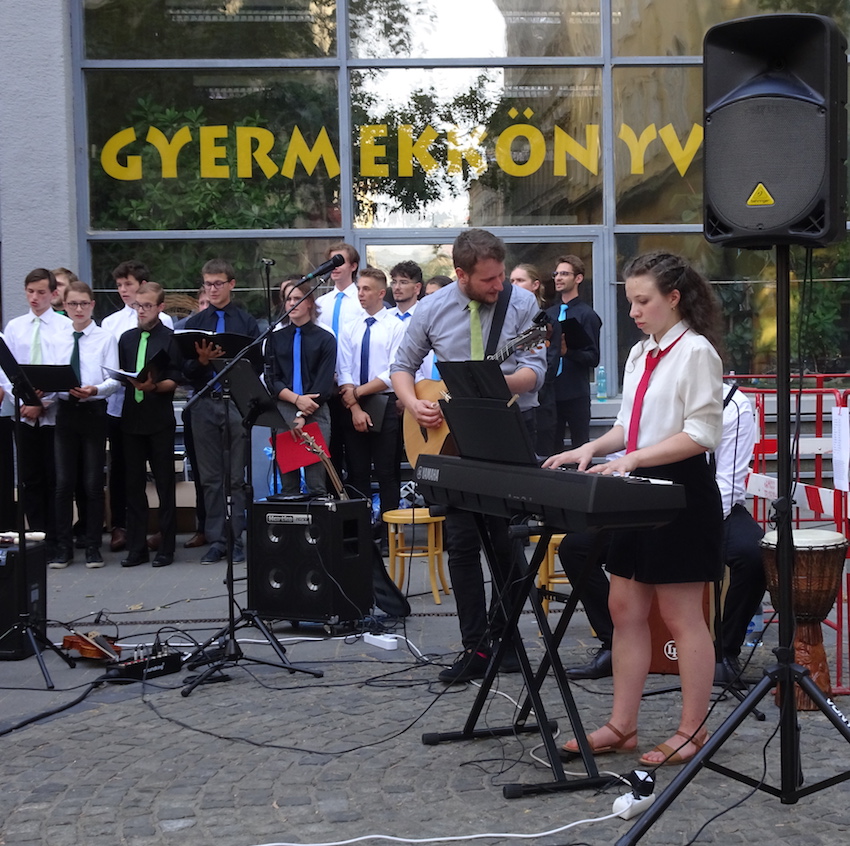
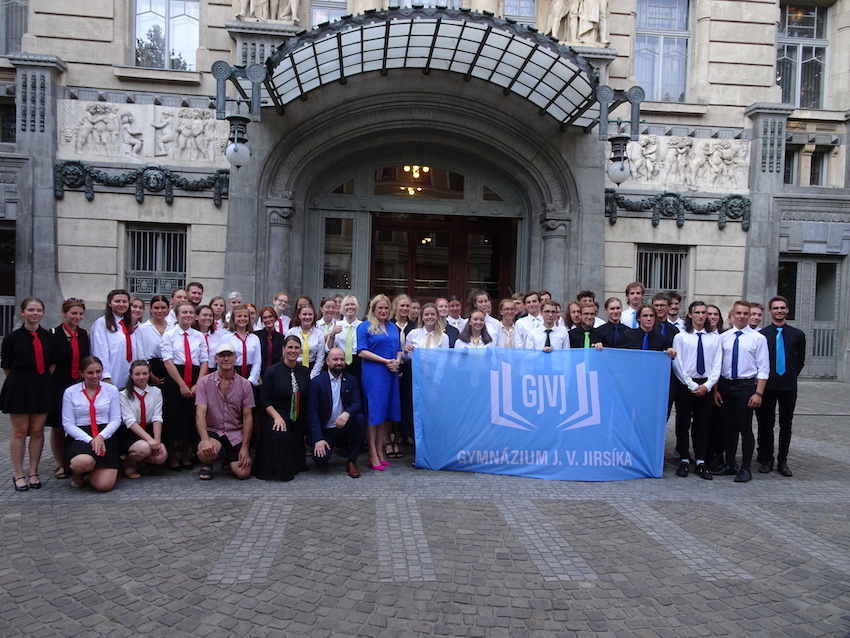
Priorities of the Czech Presidency:
The Czech Republic will focus on five closely linked priority areas during its presidency:
-Managing the refugee crisis and Ukraine’s post-war recovery
-Energy security
-Strengthening Europe’s defence capabilities and cyberspace security
-Strategic resilience of the European economy
-Resilience of democratic institutions
“Europe as a Task: Rethink, Rebuild, Repower”
The Czech government has selected the slogan “Europe as a Task” as the motto for its Presidency, in tribute to the renowned speech of Vaclav Havel, delivered in 1996, at the awards ceremony of the International Charlemagne Prize in Aachen, Germany.
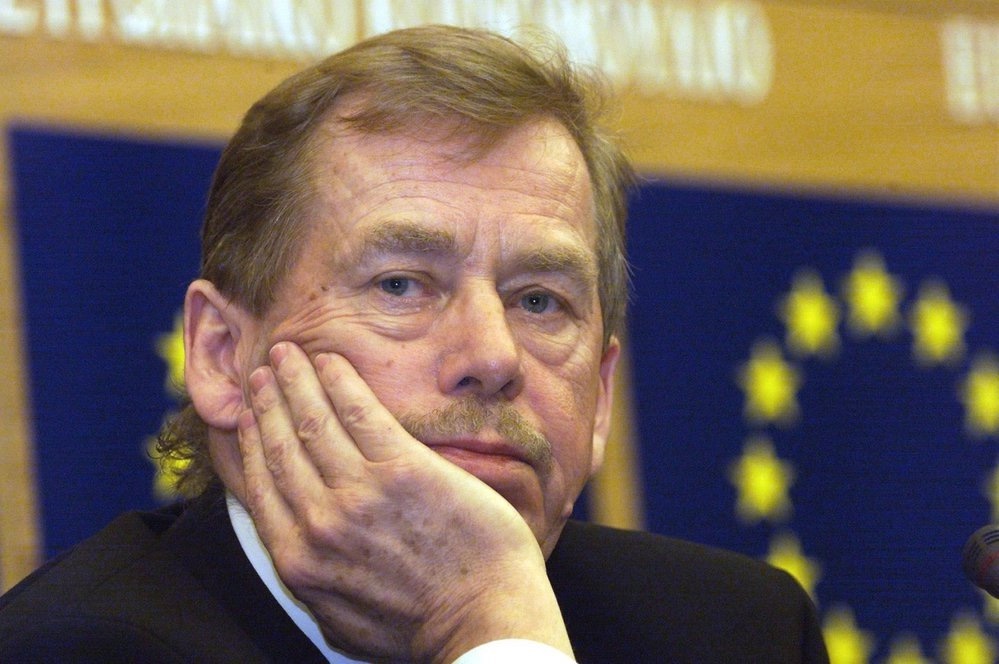
The Czech government chose the title of its first President’s writing not only to foster “reflection on Europe and a re-evaluation of many of our current approaches and premises”, but also as an interpretation of Havel’s words as a call to take more responsibility for global ecological, social and economic challenges. In 1996, Havel described the task of Europe as follows: “In a somewhat exalted way, we might say the task of Europe today is to rediscover its conscience and its sense of responsibility in the deepest sense of the word, not just with regard to its own political architecture but also with regard to the world as a whole. It may sound paradoxical, but European unification has never meant limitation of freedom in the sense of expropriation of certain rights of the citizen by an increasingly distant power. It has been just the opposite – a process enhancing people’s freedom. It seems to me that it is only now, with the European Union launching a new round of talks on its future and with discussion on its common foreign and security policy under way, that Europeans and European politicians are beginning to recognize the full magnitude of this deeply political dimension of the European unification process”.
Havel highlighted the political need for European unity. He described the EU as a peerless attempt to make Europe a unified, democratic space of solidarity and underscored the importance of the Common Foreign and Security Policy.
Although Havel’s memorable words were written in a different time and in a very different Europe, the message remains as strong as ever.
If we want to live up to the expectations of this historical moment, our triple challenge is to: Rethink, Rebuild and Repower Europe.
Message from Mr Petr Fiala, Prime Minister of the Czech Republic:
“Europe is not just a name for the continent we live on. It is first and foremost a collection of principles and values that we uphold and cherish together. The fundamental ones are freedom and responsibility. Freedom of individuals, but also of nations. Responsibility for oneself, for our families, for other citizens, but also for the environment that surrounds us.
The Russian invasion of Ukraine has shown us that our freedom and security are as threatened today as they were in the past. The fight for freedom never ends. The task of the European Union and the Czech Presidency of the Council of the EU is to assist Ukrainians who are currently fighting for their homeland and for the freedom to choose their future.
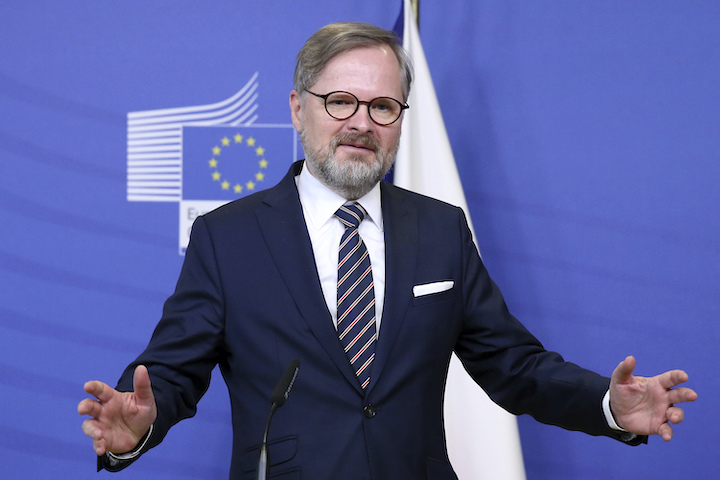
The Russian invasion has triggered the largest population movement in Europe since the end of WWII. It also far exceeds the migration wave of 2014-2015. The Czech Presidency focuses on effective European cooperation and solidarity to achieve long-term successful integration of refugees into the societies of EU Member States.
Another important task of the Czech Presidency will be the post-war reconstruction of Ukraine. This should focus on restoring critical infrastructure, ensuring essential services, strengthening resilience and overall economic stability. The EU’s intensive cooperation with Ukraine and the coordination of the necessary financial resources of the entire free world will be crucial.
The need for an accelerated transformation of Europe’s energy sector is even more urgent today. Its decarbonisation is no longer only about climate protection. It is now, above all, a condition for our independence and energy security. The EU’s climate commitments are heading towards the end of this decade. This transformation must be carried out in an economically and socially sensitive manner, so as not to jeopardize the standard of living of our citizens and the competitiveness of our industry. The Czech Presidency will focus on implementing the RePowerEU package, which includes a faster transition to low-carbon and renewable energy sources, energy savings or more resilient, diversified sources.
The Czech Presidency will also seek to strengthen European defence capabilities, especially in cooperation with NATO, where the priority is to support the implementation of key topics under the Strategic Compass. The development of long-term cooperation in strategic military systems is essential. In addition, we will seek budgetary support for the renewal of the armaments of European armies.
The COVID pandemic and the war in Ukraine remind us that we need to strengthen supply chains and increase the resilience of the European economy as a whole to external threats. The Czech Presidency aims to move forward as quickly as possible with the conclusion of trade agreements with democratic states and to deepen transatlantic cooperation within the EU-US Trade and Technology Council (TTC), with an emphasis on strategic cooperation.
Europe is currently facing many problems and challenges, but if we act with unity and determination, we will emerge stronger and more resilient from these crises.
On behalf of the Czech Republic, I promise to accept the Presidency of the Council of the EU with pride, humility and determination and that we will carry it out in the interests of all citizens of the Member States of the European Union.”
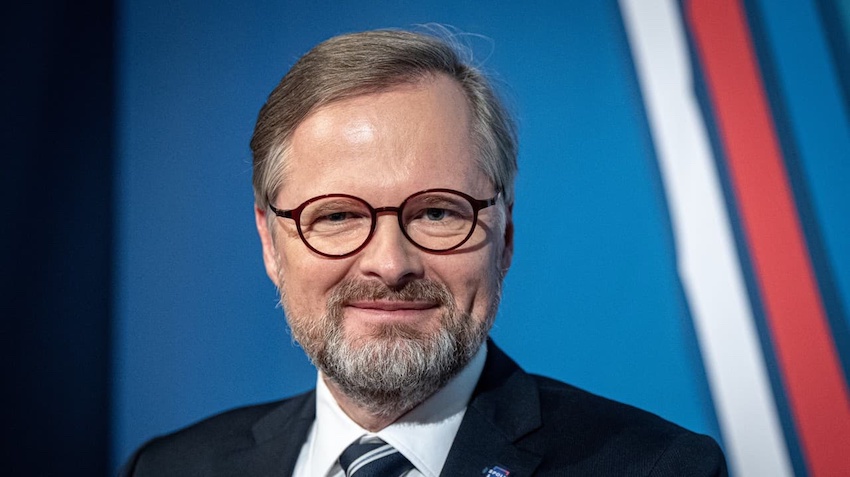
The logo of the Czech Presidency:
The graphic symbol contains a total of 27 elements representing the Member States of the EU. Each element is based on the colours of the flag of a particular Member State, reflecting the motto of the European Union “United in diversity”.
